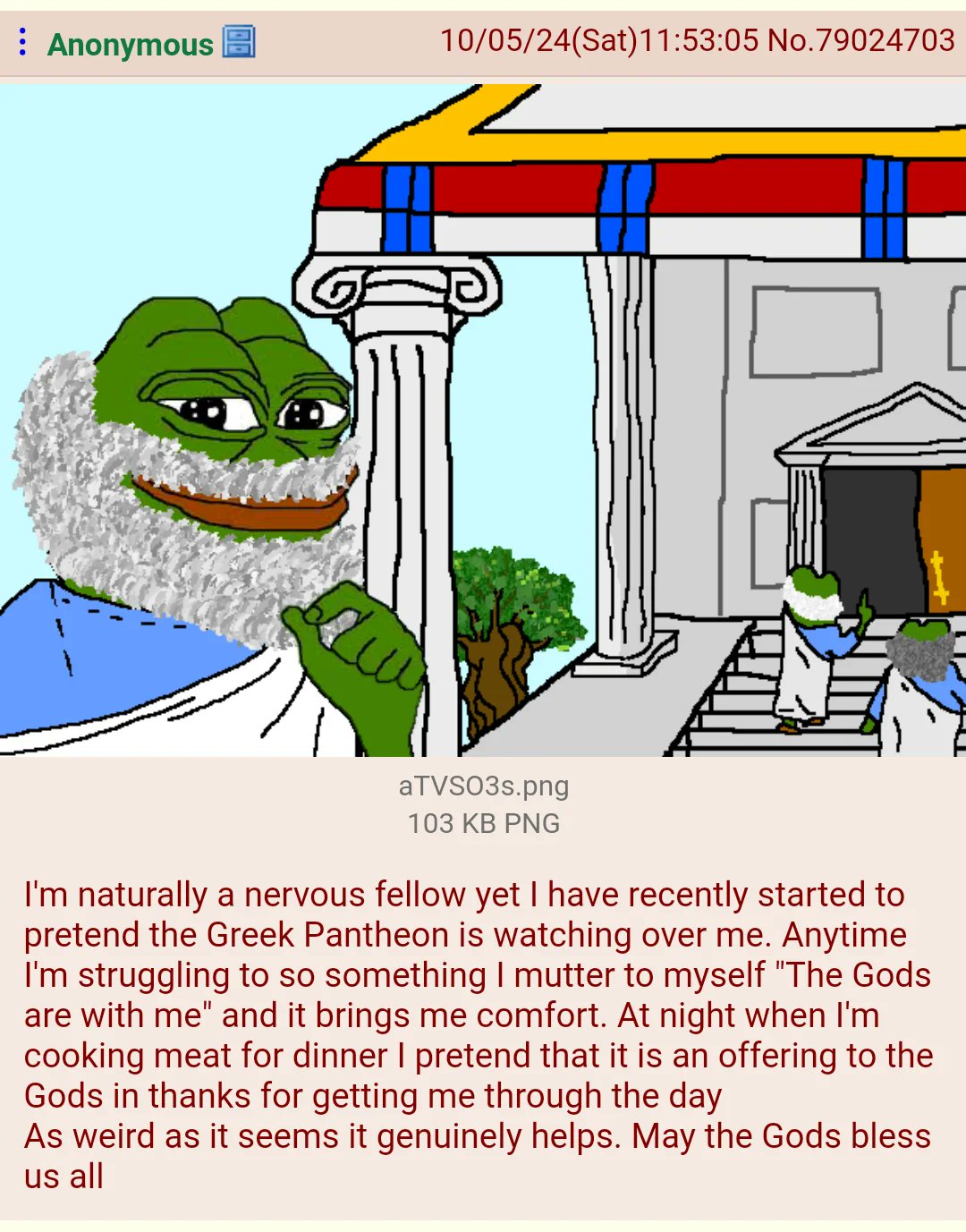this post was submitted on 13 Dec 2024
433 points (98.4% liked)
Greentext
4604 readers
1466 users here now
This is a place to share greentexts and witness the confounding life of Anon. If you're new to the Greentext community, think of it as a sort of zoo with Anon as the main attraction.
Be warned:
- Anon is often crazy.
- Anon is often depressed.
- Anon frequently shares thoughts that are immature, offensive, or incomprehensible.
If you find yourself getting angry (or god forbid, agreeing) with something Anon has said, you might be doing it wrong.
founded 1 year ago
MODERATORS
you are viewing a single comment's thread
view the rest of the comments
view the rest of the comments

Why? (Honest question)
Greek temples had stairs on all sides and didn't really have an interior, at least not a public one. Roman temples had stairs on one side that led to the entrance. Greek Roman
But the columns are Ionic, it uses a post and lintel method, the entablature is not Etruscan and the front room could well be a cella.
At the same time it is true that the peristyle colonnade is not there, which matches some Etruscan styled temples (just columns on front), though both the Temple of Athena and the Erechtheion don't have a peristyle colonnade.
For what steps are regarded, some temples only had crepidoma across the front façade, like the Lycosura temple, which would both match the frontal colonnade with no perimeter and the frontal crepidoma that doesn't have sterobates around the temple (like is common).
So while unorthodox, I don't see why this would be Etruscan or "Roman".
Those are… words… I think.
Ah I see. Per usual the issue is more complex and nuanced than I thought. Thank you for the information :)
Happy holidays!
Fuck if I know, but it looks a lot like the Temple of Portunus...
Capitel and colums are in greek style, maybe the stairs give it away?
That's a great observation, after all that temple is a hybrid between Etruscan and Greek. (And the columns indeed are Ionic).